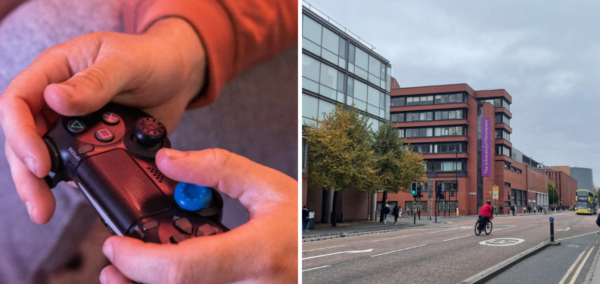
Overseas UCL students left without money for a semester after Turing Scheme payment delays
‘They need to offer better support to students’
UCL students studying abroad are still waiting to receive government funding, months after starting their placements.
Many UCL students have now spent a whole term abroad without money from the Turing Scheme and students are still waiting to hear about receiving their money.
The Turing Scheme replaced the European Union’s Erasmus+ after Brexit. It enables students to work and study abroad whilst at university.
Under the Erasmus+ scheme, students didn’t have to pay tuition fees to their host university with funding budgets being set years in advance. However, Turing funding covers maintenance only, and is budgeted annually.
The Turing Scheme is funded and delivered by the Department for Education with money distributed by the government to universities, who then decide how to hand out the money to their own students.
However, UCL students are concerned after not receiving this maintenance fund, despite already being abroad, with some having been rejected from the scheme totally.
A current UCL student, who wished not to be named, told The London Tab: “[UCL] don’t have a clue when the Turing portal is going to be set up so I don’t know when I’m going to get the money, even though I’ve filled in all the paperwork on time. Last year, people didn’t get the money until March, apparently.”
Students were warned about this delay in preparatory meetings, but the UCL study abroad team blamed it on the government’s inefficiency.
One student, Sam*, was present at the meeting, they said: “It’s annoying because we were told in the prep meetings that our funding would be late because of the government and not because of UCL, but then we came [abroad] and met people from other unis who got their funding at the start of their placement.”
Most Read
Sam continued by saying: “It makes it difficult to believe that the government alone is to blame for the delay, especially now we’ve been told we have to wait until January.”
While students from some universities such as Bath are facing similar issues, others are not, with students from Manchester, Edinburgh, Kingston, Oxford and Cambridge having received funding between August and early October.
In an email sent to unsuccessful funding applicants, UCL’s study abroad team said they only have enough funds to provide money to students who are either disabled, have special educational needs, or are part of the Widening Participation scheme. If done right, this could have been a good way to ensure that the students who needed the funding most received as much as possible.
UCL student Elizabeth said: “We’re wondering whether the study abroad team just looked at whether the boxes for disability or Widening Participation were ticked on the application form, and then didn’t actually read the rest of the application.
“I have a condition which means I get reasonable adjustments at UCL, which I talked about in the application form, but I didn’t tick the disability box because I wasn’t sure if my condition warranted extra funding, and the prep meetings gave the impression that I was likely to receive some funding without having to state that I was disabled.
“Other people who ticked the box because they get the same adjustments as me are getting funding, so it seems a bit unfair. If they’re eligible, I should be eligible too.”

The email sent by UCL to unsuccessful Turing applicants.
However, it wasn’t just Elizabeth feeling this way, as another student shared her frustration: “UCL just sent a blunt email that offered no alternative support or signposting.
“I don’t think the fact that they weren’t allocated enough Turing funding is their fault, but they need to offer better support for students who don’t [receive] it, and the government needs to come up with a better idea because on Erasmus funding a lot more people got [the grant].”
UCL has made it clear throughout the application process that any decisions made about the distribution of funds are final, so students who feel like they have been left behind by the system believe they have no way of voicing their concerns.
Even students who’ve been chosen to receive funding have had to pay for an entire term of living costs and rent, not to mention flights and visa fees, without the funding they are supposed to be getting.
In a statement to The London Tab a UCL spokesperson said: “Guidance and system access for the Turing Scheme has been delayed this year, due to changes in how the scheme is administered at the national level.
“UCL was one of a number of providers who did not have access to the online grant management tool by December 2024. When we received the guidance and system access on 13 December we released grant paperwork to students within four working days. We are reviewing paperwork daily and running weekly payment batches to ensure that students receive their funding as quickly as possible.
“Students are advised from the outset that Turing Scheme funding is not guaranteed, that it is a contribution to costs, rather than a primary funding source and that widening participation students are prioritised. They are also advised of other sources of funding, including Student Finance England (or equivalent) maintenance loan. Due to the Scheme’s annual project cycle and timelines, students who are selected to receive Turing funding do not receive their grant until they are already on placement.
“UCL students are also able to access a range of finance support schemes, including the Financial Assistance Fund, short term loans, and emergency assistance grants.”
The Department for Education has been contacted for comment but has not yet responded.
* = Name has been changed





















